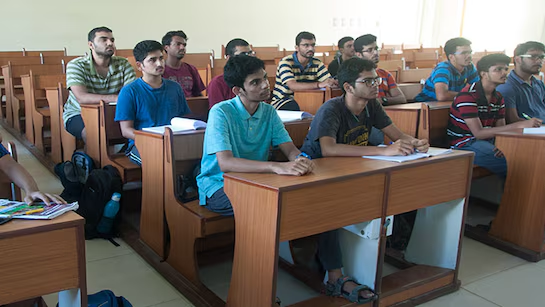IIT Madras Launches Rs 200 Crore VC Fund for Early-Stage Startups
The Indian Institute of Technology Madras (IIT Madras) is setting the stage for a new wave of innovation with its announcement of a Rs 200 crore venture capital fund. This initiative, unveiled at the Sangam 2025 summit, aims to bolster early-stage startups, particularly in the deep tech sector.
Focus on Deep Tech Innovation
The “IITM Alumni Fund” is designed to support pre-Series A and Series A investments, prioritizing startups within the IIT Madras ecosystem. By focusing on deep tech, the fund aligns with global trends where technology-driven solutions are at the forefront of industry transformation. The fund will function as an independent entity, ensuring robust governance and due diligence.
Key Highlights from Sangam 2025
- Participants: Over 500 attendees, including alumni, faculty, investors, and students, gathered at the summit.
- Keynote Speakers: Aparna Chennapragada from Microsoft and Srinivas Narayanan from OpenAI shared insights into the future of AI and innovation.
- Startup Pitchfest: Twenty deep-tech and AI startups showcased their innovations to more than 250 venture capitalists and angel investors.
Funding and Support Ecosystem
The fund will primarily draw from IIT Madras alumni and high-net-worth individuals. Prof. V. Kamakoti, Director of IIT Madras, emphasized the community’s role in nurturing strong startups, stating, “This is an opportunity for our community to back strong startups and grow together.”
IIT Madras’ Incubation Success
- 500+ Startups Incubated: The institute has incubated over 500 startups, valued at more than Rs 50,000 crore (approximately $6 billion).
- Specialized Programs: Initiatives like the Pravartak Technologies Foundation and the Centre of Excellence in Sports Science and Analytics offer capital, advisory services, and physical infrastructure.
Government Support for Deep Tech
India’s government is actively fostering a deep-tech ecosystem. During the summit, Piyush Goyal, Minister of Commerce and Industry, reiterated the government’s commitment by announcing a second Rs 10,000 crore tranche for deep-tech innovation. This is part of a broader strategy to allocate $12 billion to the Department of Science and Technology, providing flexible capital for emerging technologies.
The Role of Alumni and Community
Prof. Ashwin Mahalingam, Dean of Alumni and Corporate Relations, highlighted the fund’s potential impact: “This fund—driven by alumni and designed for high-impact startups—is the kind of focused support that can help us scale these innovations into global ventures.”
Why Deep Tech?
Deep tech, characterized by significant scientific advances, is reshaping industries. From AI to biotechnology, these innovations promise to solve complex problems. By investing in deep tech, IIT Madras positions itself as a leader in nurturing groundbreaking solutions.
The Bigger Picture
IIT Madras’ venture capital fund is more than just financial support. It represents a strategic effort to create a sustainable ecosystem where innovation thrives. With a focus on deep tech, the institute is setting a precedent for other educational institutions globally.
What Does This Mean for You?
If you’re an aspiring entrepreneur or investor, this initiative signals a robust support system for deep-tech ventures. The combination of financial backing, expert guidance, and government support creates a fertile ground for innovation.
Conclusion
IIT Madras is not just supporting startups; it’s building a future where technology and innovation lead the way. The Rs 200 crore VC fund is a testament to the institute’s commitment to fostering an entrepreneurial revolution. As deep tech continues to evolve, IIT Madras is poised to be at the forefront, driving change and creating opportunities for the next generation of innovators.
For more information on IIT Madras and its initiatives, visit IIT Madras.
Thought-Provoking Question
Are educational institutions the new breeding grounds for technological innovation? How can other universities replicate IIT Madras’ success in nurturing startups?




















